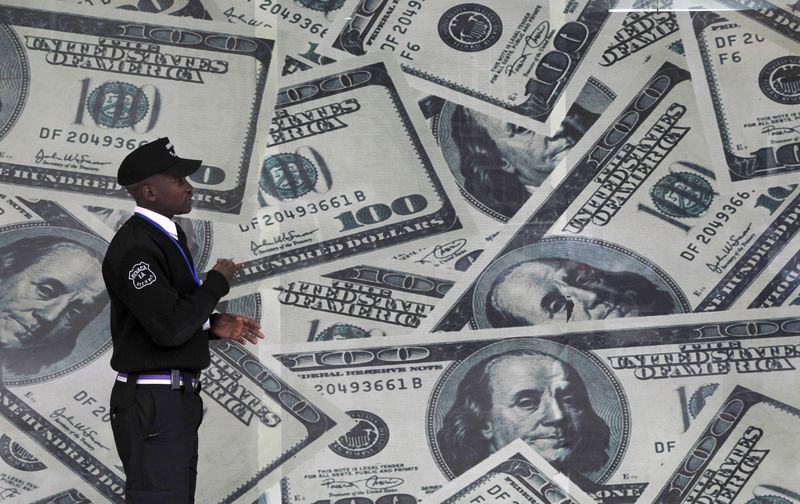Investing.com - The dollar edged lower against a basket of major currencies on in thin trade on Tuesday, while the pound jumped higher after stronger-than-expected U.K. inflation data.
Investor sentiment remained wary after a steep drop in Chinese stocks on Tuesday fanned fears that Beijing could still let the yuan fall further after last weeks devaluation.
The dollar dipped against both the safe haven yen and the Swiss franc, pulling back from earlier highs amid increased safe haven demand.
Sterling rallied after an uptick in UK inflation added to pressure on the Bank of England to raise interest rates.
GBP/USD was last up 0.53% to 1.5669, the most since July 1 from around 1.5598 ahead of the data.
The UK consumer price index ticked up 0.1% in July compared to the same month last year after falling to zero in June.
Economists had expected a flat reading.
Core inflation, which strips out volatile factors like energy and food, rose to a five month high of 1.2%, indicating that underlying inflationary pressures are building.
The euro was little changed against the dollar, but fell to one-week lows of 0.747 against the pound.
The single currency was also weaker against the Swiss franc, with EUR/CHF sliding to 1.0811.
The greenback also gained ground against the Canadian dollar, with USD/CAD up 0.18% to 1.3104 as declines in oil prices weighed on the loonie.
The Australian dollar slid to 0.7353.
The Aussie fell to six-year lows of 0.7214 last week after the yuan depreciation before recovering after China's central bank said there was no basis for further depreciation in the currency, given China's strong economic fundamentals.
The New Zealand dollar edged up to 0.6518.
The US dollar index, which tracks the greenback against a basket of six major rivals, was steady at 96.8 having pulled back from last week’s one month trough of 95.94.
Investors were looking ahead to reports on the U.S housing sector later Tuesday for fresh cues ahead of Wednesday’s Federal Reserve minutes.
The minutes of the Fed’s July meeting were expected to provide more clarity on its plans to hike short-term interest rates for the first time since 2006.
